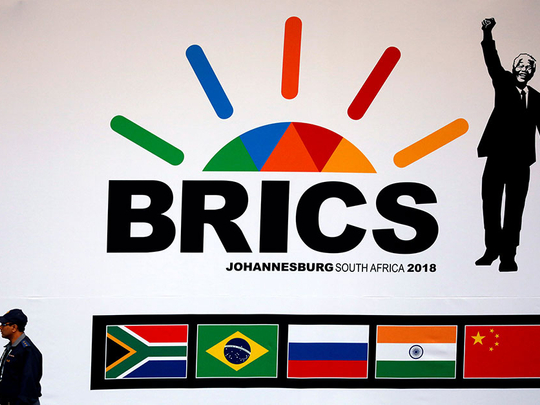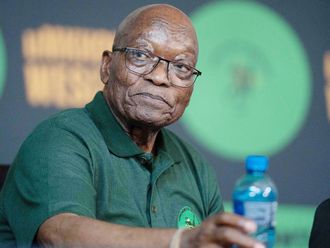
A decade after its formation, the Brics group of nations finds itself facing a changing world order.
Over the past few years the grouping has grown into a platform for cooperation among emerging markets and developing countries.
According to IMF estimates, they have contributed more than 50 per cent of the world economic growth during the last 10 years. At a time when the US and China are announcing new punitive measures almost every week, the threat of a worsening global trade war is likely to give fresh impetus to the grouping. The latest meeting will also provide a platform for a fightback against US President Donald Trump’s protectionist agenda.
Over the years Brics has moved towards a multipolar economic and political order and has made efforts towards strengthening the economic system. The New Development Bank is a case in point. A joint initiative by Brics members, it has now opened its doors to provide finance to all, including non-member states.
Founded with the objective of cooperation between the member nations for development, providing financial assistance and supporting various projects, Brics has established mechanisms for consultations at different levels and in various fields. In the years that lie ahead, Brics must address other challenges, including a rapidly changing climate and regional conflicts.
Speaking in one voice
But for Brics to be a formidable bloc recognised on the world stage, the leaders must speak in one voice and act together on issues that matter — from trade to global governance to the alleviation of poverty.
It can promote economic cooperation among developing countries and emerging economies drawing from its own individual experiences. This will then help shift Brics from a grouping that meets once a year to one that is involved in world affairs, thereby making a change in the lives of the people.












